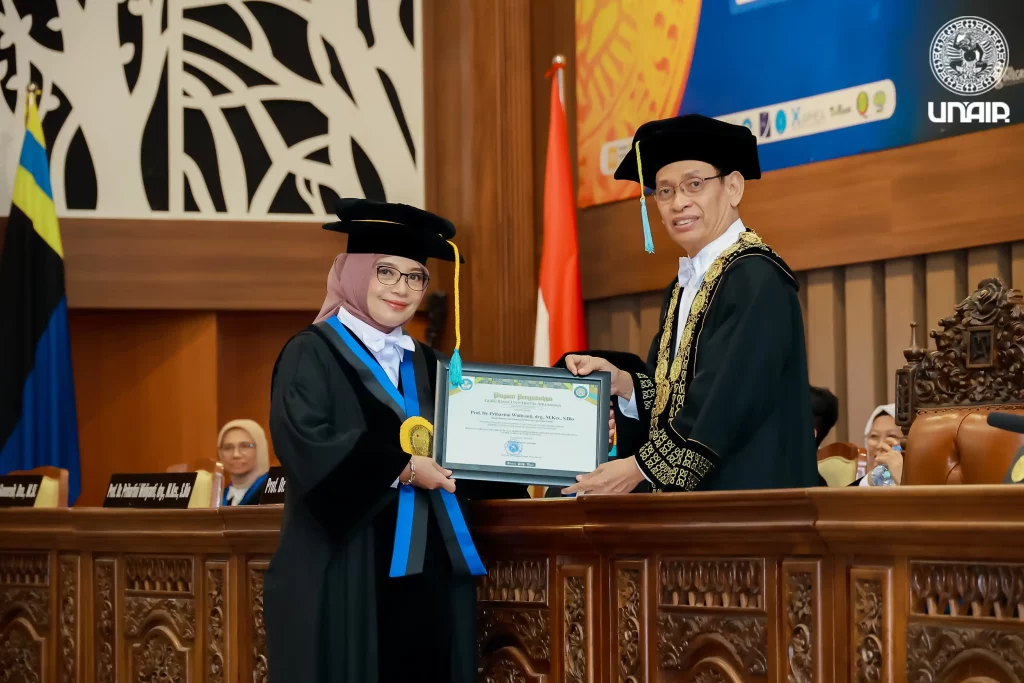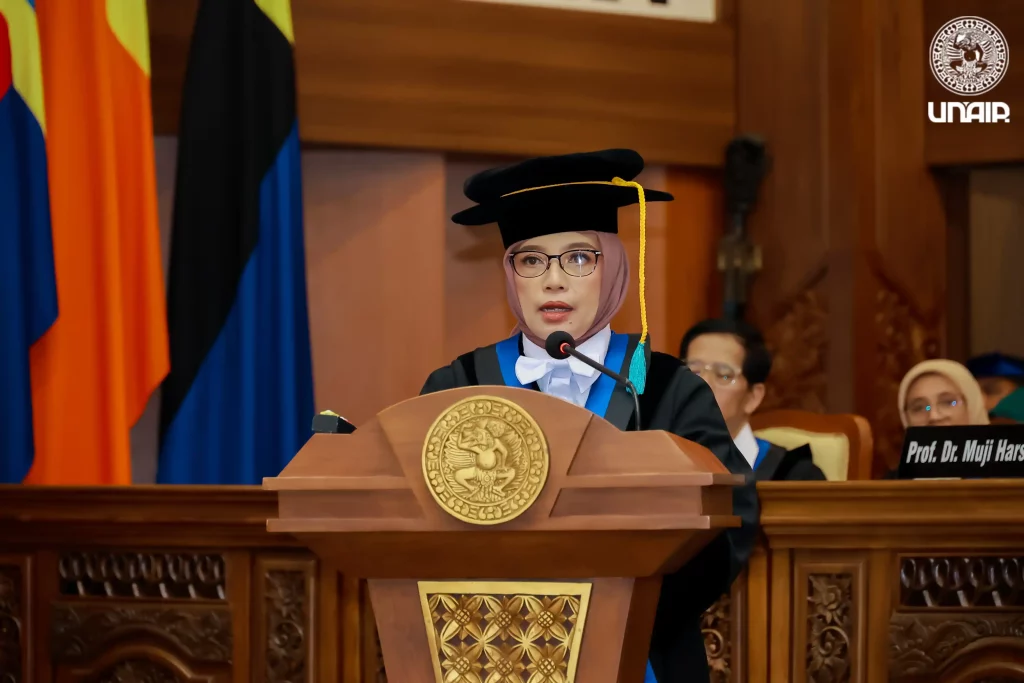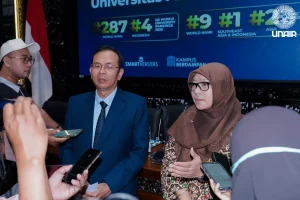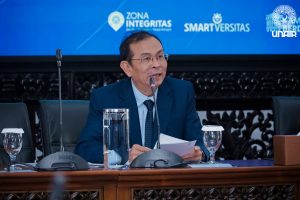UNAIR NEWS – Professor Dr. Prihartini Widiyanti, drg., MKes., SBio, has been formally inaugurated as a full professor at Universitas Airlangga (UNAIR). Her appointment as Professor in the field of Biomaterials for Soft Tissue Engineering was celebrated on Thursday (May 8, 2025) at the Garuda Mukti Hall, 5th Floor, MERR-C Campus UNAIR.
In her inaugural scientific oration, Prof. Widiyanti addressed the global health crisis faced by patients suffering from burns, fractures, and organ failure, many of whom struggle to find organ donors. She emphasized the crucial role biomaterials technology must play in addressing this gap. “Every day, 19 people die due to a lack of organ donors. Tissue engineering offers a vital lifeline and renewed hope for these patients,” she said.
Tissue engineering innovation
Tissue engineering provides a promising avenue for reducing the global shortage of organ donors. This field combines biology, medicine, and engineering to repair or replace damaged tissues, such as skin, bones, and even organs.

The technology uses biomaterials—engineered substances designed to mimic natural tissues. These materials are commonly used in applications like cartilage regeneration, bioactive skin reconstruction, and the development of cell-based artificial organs. “These innovations can regenerate natural tissues and offer permanent solutions with a lower risk of rejection when using the patient’s own cells,” she explained.
UNAIR contributions to Medicine
Through UNAIR’s Tissue Engineering and Artificial Organ Study Group, Prof. Widiyanti and her team have pioneered a range of medical innovations, including artificial blood vessels, synthetic meninges, artificial corneas, and ear prosthetics.
These cutting-edge products are designed not only to save lives but also to reduce Indonesia’s reliance on imported medical devices. “These are more than lab prototypes—they’re a testament to our nation’s capacity for medical innovation and self-reliance,” she stated.
Other innovations developed by her team include chitosan-based hemostatic sponges, polyurethane-collagen nerve conduits, and non-allergenic silicone ear implants.
Prof. Widiyanti emphasized that research must extend beyond the laboratory to real-world application. She stressed the importance of continued development and downstream production of biomaterials to benefit broader society. Her goal is to establish UNAIR as a leading hub for tissue engineering and artificial organ development in Southeast Asia.
“With sustained research, cross-disciplinary collaboration, and strong national policy support, I am confident that we can reduce our dependence on imports and place Indonesia firmly on the global scientific map,” she concluded.
Author: Sintya Alfafa
Editor: Yulia Rohmawati









